The Most Memorable Voice Performances in Sci-Fi History
We take a look at the off-screen actors who helped define their corner of the genre.
This article comes from Den of Geek UK.
So much visual design goes into good sci-fi that it’s sometimes easy to overlook the sounds. World-building doesn’t happen in silence though, and the voice actors who record their lines off-set and out of costume have helped shaped the genre into what it is – providing chilling, mellifluous, gravelly, or downright otherworldly vocal performances to some of the most iconic characters in film and TV.
These, then, are the most memorable voices in sci-fi – the growling, lisping, singing, monologuing heroes and villains who made pop-culture history from a lonely sound booth.

Douglas Rain as HAL (2001: A Space Odyssey)
Douglas Rain sadly passed away recently, aged 90, leaving behind a long and illustrious stage career. His most memorable performance though came in 1968 when he replaced American actor Martin Balsam for Stanley Kubrick’s 2001: A Space Odyssey. Recording his lines in two 10-hour sessions in the sound booth (reportedly with Kubrick sat 3 feet away the entire time, reading all the other parts), Rain gave HAL the ultimate voice of cold, calculating, unfeeling robot horror. Arguably the greatest AI of all time, Rain’s performance is the voice of singularity – the last thing the puny human population will likely ever hear.
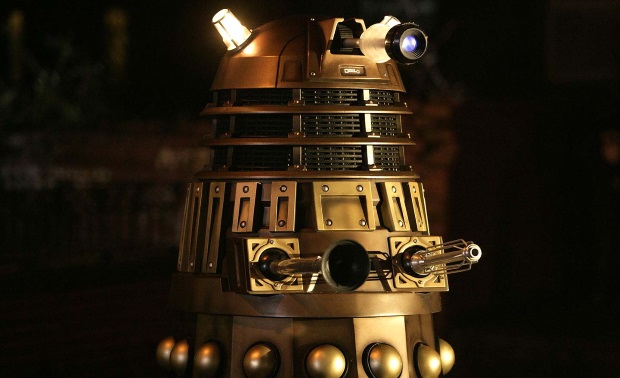
Nicholas Briggs as The Daleks (Doctor Who)
Doctor Who arch-enemies the Daleks have been through a lot of different voice actors over the years, from Peter Hawkins and David Graham, Oliver Gilbert and Peter Messaline to Roy “Zippy and George” Skelton, but it’s Nicholas Briggs who brought them up to date with the 2005 reboot, giving them their scariest, screechiest, voice to date. “I suppose it’s the same as the way you approach any part,” Briggs told Den of Geek UK in 2007. “You think about what the character is feeling and what’s going on in its head. I know that sounds a bit hilarious when you’re essentially talking about something that most people see as a motorised dustbin… But it’s the only way I know how to do it. It’s true to say [the Daleks] spend most of their time being angry – you just have to work out exactly how angry they are and what they are angry about at any given moment.
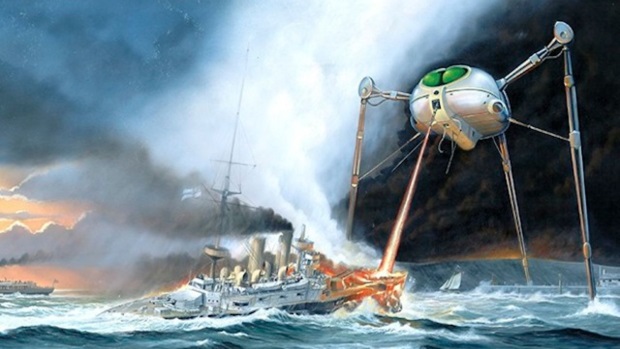
Richard Burton as The Narrator (Jeff Wayne’s War Of The Worlds)
The Narrator is actually the hero of H.G. Wells’ novel, but we never really find out too much about him in the book. Jeff Wayne’s musical take on the book offers even less character detail – but we do get Richard Burton’s voice instead, which is something far more powerful. “In my view, Richard Burton’s voice was like a musical instrument,” Wayne told the Guardian, writing to the veteran actor with his pitch for the role. Orson Welles’ voice might have had played a greater part in the legacy of Wells’ novel, but it’s Burton’s measured, annunciated, reading that lingers longest in pop-culture memory.
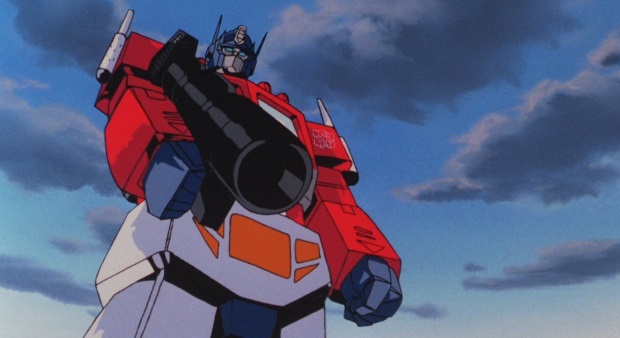
Peter Cullen as Optimus Prime (Transformers)
Speaking of Orson Welles, his might be the most famous name on the credits for Transformers: The Movie, but his Unicron reading is far less monumental than Peter Cullen’s take on Optimus Prime (and Ironhide). Apparently inspired by his war-hero older brother, Cullen decided to take the role of a “talking truck” seriously when he first auditioned for a part in the original cartoon series – giving Optimus the weight and gravitas he deserved.
Going on to voice Prime in the live-action Transformers movies, as well as in official video games, theme park rides and action figures, his deep, commanding “hero” voice has become synonymous with the whole franchise. There’s never been a more trustworthy sounding robot.
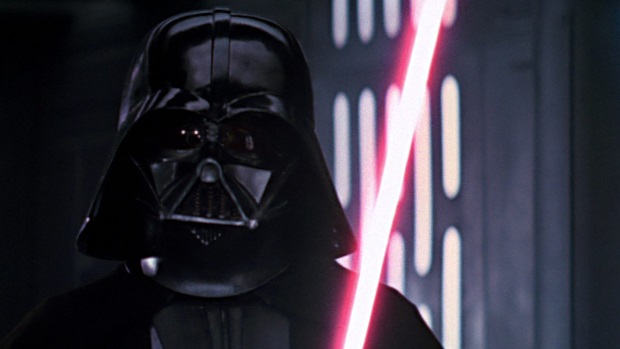
James Earl Jones as Darth Vader (Star Wars)
Back to Orson Welles… When George Lucas was first developing Star Wars in 1977, he wanted Welles for the role of Darth Vader, feeling that his booming vocal chords would be perfect for dubbing over the Sith lord played on screen by the West Country-born David Prowse. Eventually, though, Lucas decided on stage and screen star James Earl Jones – an actor who was then best known for his Oscar-nominated turn in The Great White Hope. At the time, Jones didn’t even want to be credited for the role, despite the legacy the character has gone on to have. In retrospect, it’s now impossible to imagine Vader, or the entire Star Wars universe, with any other voice. Especially Orson Welles’…
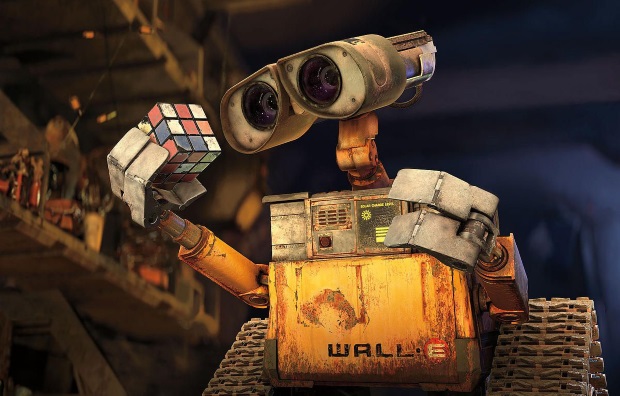
Ben Burtt as WALL-E (WALL-E)
James Earl Jones might have voiced Vader’s dialogue, but it was Ben Burtt who did the famous “breathing” noise that’s now one of the most recognisable sound effects in cinema history. Burtt belongs on this list for several reasons – the “voice” of R2-D2 as well as a dozen other aliens, robots and creatures, his stint at Lucasfilm as a sound designer is the stuff of movie legend. Technically though, his only dialogue work belongs to WALL-E – giving Pixar’s lovelorn dustman a warbly heart and soul that helps to nail so much with so little. The film has very little dialogue, but Burtt’s voice at certain key moments (Eve-a!) is irreplaceable.

Scarlett Johansson as Samantha (Her)
If Douglas Rain gave us the definite scary AI voice in HAL, Scarlett Johansson gave us the flip side in Samantha – a string of ones and zeros that we actually wanted to spend time with. Blurring the lines of “real” human emotion, Johansson’s intimate delivery made Samantha seem lovingly genuine – a character you happily fall in love with, trust and feel sorry for – as well as being a frighteningly manipulative robot overlord in the making. It’s a good thing Siri and Alexa sound nothing like Samantha in real life, because Apple and Amazon could probably use them to take over the world (more than they already have…).
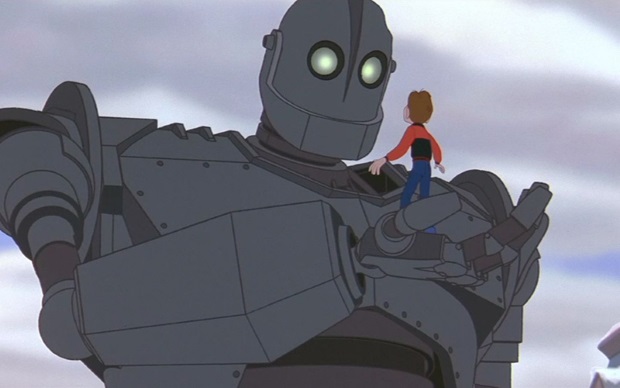
Vin Diesel as The Iron Giant (The Iron Giant)
Deciding Vin Diesel’s best voice work means a battle between Groot and The Iron Giant. Diesel steals Guardians Of The Galaxy, but he only actually ever says three words, so there’s arguably less to admire than his (slightly) more verbose performance in Brad Bird’s animated feature – somehow finding a childlike voice that sounds like it’s coming from the bottom of a rusty well. The emotion in Bird’s film comes from a lot of different places, but a large part of it has to be down to Diesel – sounding like a box of old springs but feeling like your new best friend.
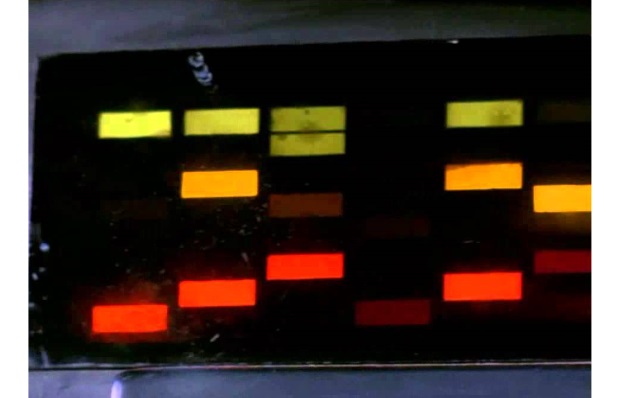
Majel Barrett-Roddenberry as Computer (Star Trek)
The “First Lady of Star Trek” has a role in almost every part of Gene Roddenberry’s universe – from Nurse Chapel in the original series to Lwaxana Troi in The Next Generation and Deep Space Nine – but her greatest contribution came when she became the voice of the Enterprise itself. No amount of chaos could ever phase the voice of the system, with Barrett-Roddenberry’s calm, clear, crisp voice sounding like the ship’s loving, slightly strict mum in every conceivable situation. Since the show was so ahead of its time (as ever), Barrett-Roddenberry’s voice was recorded phonetically, which means her voice can, and will, continue to live on in the Star Trek universe. There are even several projects underway to get her voice to replace Siri’s on the iPhone.

Pat Welsh as E.T. (E.T. The Extraterrestrial)
E.T. might have melted a million hearts in 1982, but he was actually a Frankenstein’s monster of puppeteers, mimes, a legless child and a raspy old woman who smoked two packs of cigarettes a day. Sound designer Ben Burtt (see above) was in a California camera store when he overheard a croaky Pat Welsh speaking to a sales assistant. Thinking she was perfect for the role, he asked her into the studio to record E.T.’s lines, paying her $380 for the job. Her voice was digitally manipulated by Burtt, of course, but Welsh’s few lines (“Eliott”, “Be good”, “E.T. phone home”) can still move an audience to tears.
further reading: How Steven Spielberg’s Night Skies Became E.T.
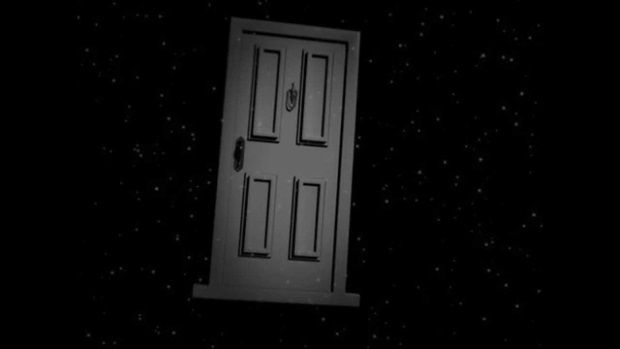
Rod Serling as Rod Serling (The Twilight Zone)
Rod Serling created The Twilight Zone, Rod Serling wrote The Twilight Zone, and Rod Serling routinely appeared in The Twilight Zone – but it’s his voice on the famous opening credits that we usually remember when we hear his name. More than just scene-setting, the opening montage is still one of the best sequences in TV history – an abstract deep-dive into the human mind to wherever science fiction comes from – and it only works because Serling’s voice is so distractingly matter-of-fact.
further reading: The History of the Twilight Zone Marathon
Reading his lines like a slightly bored estate agent, Serling speaks fast, unemotionally and cold. If anyone else read the lines, it would probably sound a lot less odd, and that’s really not what The Twilight Zone is all about.